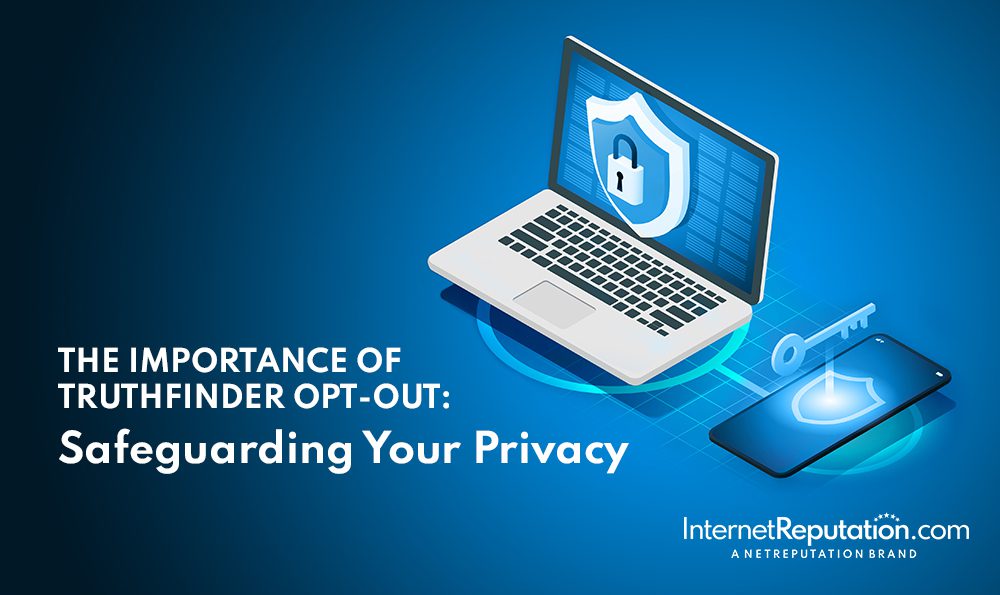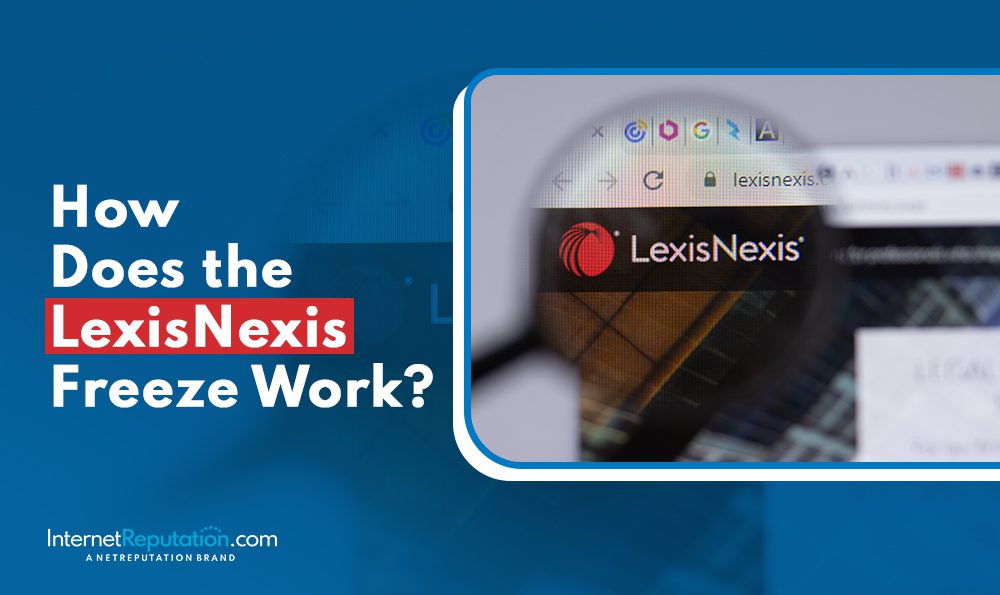The Importance of Truthfinder Opt-Out: Safeguarding Your Privacy

In today’s digital age, online privacy has become a major concern for individuals. With platforms like Truthfinder collecting and sharing personal information, it is crucial to understand the importance of safeguarding your privacy.
Key Takeaways:
- Safeguard your personal information by opting out of Truthfinder and preventing identity theft.
- Maintain control of your online presence and avoid unwanted marketing and solicitations by opting out of Truthfinder.
- Protect your privacy by regularly reviewing and updating your privacy settings, using strong passwords, being cautious of what you share online, and using privacy-focused search engines.
The Importance of Online Privacy
The importance of online privacy cannot be overstated in today’s digital age, where personal information is constantly at risk.
One of the major risks individuals face regarding their personal data online is the proliferation of data brokers who collect and sell personal information to third parties without consent. These data brokers often compile extensive profiles containing sensitive details, such as financial information and browsing history, leaving individuals vulnerable to identity theft and targeted advertising.
Court records accessible online can also threaten privacy, as they contain personal information like addresses, phone numbers, and legal history. Malicious actors can exploit this information to commit fraud or harassment, underscoring the need for stringent data protection measures.
Legislation such as the Fair Credit Reporting Act provides a regulatory framework to protect consumer data and ensure the accuracy and privacy of credit reports. Compliance with such laws is crucial to safeguarding personal information from misuse and unauthorized access.
What is Truthfinder?
Truthfinder is a prominent data broker and consumer reporting agency that gathers and provides access to various personal information.
As a reputable data broker and consumer reporting agency, Truthfinder specializes in collating vast amounts of personal data to offer comprehensive background check services to its users. Leveraging advanced data collection techniques, such as scouring public records, social media platforms, and other digital sources, it compiles detailed reports that may include an individual’s criminal records, contact details, employment history, and more. Through its user-friendly platform, Truthfinder aggregates this information in a structured format, aiding individuals in making informed decisions when vetting potential employees, tenants, or acquaintances.
How Does Truthfinder Collect and Share Personal Information?
Truthfinder compiles comprehensive profiles by collecting personal information from various sources, including public records, commercial data providers, and consumer reports.
Public records, such as birth and marriage certificates, property ownership records, and court filings, form a significant part of Truthfinder’s data collection. This information combines data from commercial providers like credit bureaus and utility companies. Truthfinder also accesses consumer reports to fill in the gaps and ensure the data is up-to-date and accurate.
Why Should You Opt Out of Truthfinder?
Opting out of Truthfinder is crucial to protect your sensitive information and mitigate identity theft risk.
By opting out of Truthfinder, you are safeguarding yourself from potential threats such as fraudulent activities, phishing scams, and unauthorized access to your personal data. Identity theft is a serious concern in today’s digital age, and any exposure of your sensitive information can lead to devastating consequences that may take years to resolve.
Once your data is out there, it becomes vulnerable to exploitation by malicious individuals or organizations. The mere thought of someone accessing your financial details, home address, or contact information without consent is alarming. Taking proactive steps to opt out of Truthfinder is a proactive measure in guarding your privacy and ensuring your personal information remains secure.
Unauthorized access to your data can result in a breach of privacy, financial losses, and even emotional distress. It is essential to take control of your digital footprint and limit the exposure of your sensitive details to unknown entities. Opting out is critical in protecting yourself from potential harm and maintaining control over your personal information.
Protect Your Personal Information
Protecting your personal information is essential in safeguarding against identity theft and misuse, and utilizing tools like the suppression tool can enhance your privacy.
Safeguarding personal data goes beyond just using a suppression tool. It is crucial to adopt proactive measures to secure sensitive information. Regularly update passwords, enable two-factor authentication, and be cautious about sharing personal details online.
- Consider using encrypted communication channels when sending sensitive information.
- Shred any physical documents containing personal data before disposal.
- Monitor your financial accounts regularly for any unauthorized transactions.
By staying vigilant and implementing these strategies, you can significantly reduce the risk of falling victim to identity theft.
Prevent Identity Theft
Preventing identity theft involves monitoring your consumer credit, verifying transactions with a verification code, and promptly addressing suspicious activity.
One effective way to safeguard your personal information is to regularly review your credit reports for unauthorized activities or discrepancies.
When making online purchases or logging into secure accounts, always opt for the extra layer of security provided by verification codes. These codes add an additional barrier for potential fraudsters attempting to access your accounts.
Another crucial step is to act swiftly upon noticing any red flags, such as unfamiliar charges or account logins. By promptly informing your financial institutions and credit bureaus about any suspicious activity, you can prevent further damage and mitigate potential losses.
Avoid Unwanted Marketing and Solicitations
Avoiding unwanted marketing and solicitations involves limiting exposure through public data tools and utilizing email requests to opt out of marketing databases.
One effective strategy is to regularly monitor and adjust privacy settings on social media networks, such as limiting the visibility of personal information to only friends and connections. By taking proactive steps to safeguard your data, you can prevent it from being shared or sold to third-party marketers without your consent. Consider registering with ‘Do Not Call’ or ‘Do Not Mail’ lists to reduce unsolicited communications. Maintaining control over what information is available publicly can help minimize the amount of unwanted marketing you receive.
Maintain Control of Your Online Presence
Maintaining control of your online presence involves adhering to suppression rules, safeguarding your online privacy, and actively managing your digital footprint.
Your online presence reflects your identity in the digital world, affecting your personal and professional opportunities. Adherence to suppression rules ensures that unwanted, outdated, or harmful information is controlled to protect your reputation.
Prioritizing online privacy protection involves securing your data from potential breaches or misuse that could compromise your security.
By actively managing your digital footprint, you can shape how you are perceived online and control the information available about you. This proactive approach helps maintain a positive online reputation and build trust with your audience.
How to Opt Out of Truthfinder?
Opting out of Truthfinder involves submitting an opt-out form with personal details, verifying your identity through a verification email, and completing the process.
To initiate the opt-out process, visit the Truthfinder website and locate the form. Fill out the required fields with your accurate personal information, ensuring all details are correct to facilitate verification. Once you submit the form, a verification email will be sent to the email address provided. Check your inbox and click on the verification link to confirm your identity. After successfully verifying, follow the instructions to finalize the opt-out process and ensure that your personal information is removed from the Truthfinder database.
Step 1: Find Your Listing on Truthfinder
To opt out of Truthfinder, locate your listing on the platform, review your personal information, and understand the details in the full report.
When opting out of Truthfinder, it is crucial to carefully review the accuracy of the personal details displayed on the platform. Take the time to examine each information provided and ensure it is correct and current. Being thorough in this step is essential to avoid any potential discrepancies or misinformation in your profile. Assessing any notifications from Truthfinder can offer valuable insights into the data they hold, further aiding you in the opt-out process.
Step 2: Submit an Opt-Out Request
After identifying your listing, submit an opt-out request to safeguard your privacy and prevent your data from being accessible on similar websites used by other users.
By adjusting the privacy settings accordingly, you can control who can view and access your information.
It is essential to understand that the implications of not taking action could make your data visible to a broader audience than intended, potentially compromising your privacy.
Any changes you make to your account’s privacy settings can impact how other users interact with your profile and the information they can see.
Remembering that other websites or platforms may gather and display personal data is crucial, so being proactive in managing your privacy settings is key to protecting your information online.
Step 3: Verify Your Identity
Verify your identity through authentication processes that may involve confirming social media profiles, utilizing secure codes, and preventing instances of identity theft.
During the opt-out process, verifying your identity is crucial in ensuring the security of your personal information. Confirming social media profiles adds a layer of validation to your identity, making it harder for unauthorized access. Secure verification codes are often sent to your registered contact details, further enhancing the authentication process. This multi-step verification protects your online accounts and minimizes the risk of falling victim to identity theft, safeguarding your digital presence.
Step 4: Wait for Your Information to be Removed
Upon completing the verification process, wait for Truthfinder to remove your information using the suppression tool and confirm the successful removal of your personal data.
During this final step in the opt-out process, Truthfinder will typically provide a timeframe for the suppression tool to complete the removal request. It’s advisable to monitor your email or account for any notifications regarding the status of your request. If there are no updates or you encounter any issues, you can contact Truthfinder’s customer support through designated communication channels like email or phone. Once the removal process is finalized, you can double-check by searching for the platform to ensure your personal information no longer appears in the results.
How to Protect Your Online Privacy?
Protecting your online privacy involves utilizing strong and unique passwords, regularly reviewing and updating privacy settings, and using privacy-focused search engines for enhanced security.
Maintaining robust online privacy is essential, as is using a different password for each online account. This practice minimizes the risk of a single data breach compromising all your accounts. Mixing in special characters, numbers, and uppercase letters is crucial to creating complex passwords that are hard to crack.
Taking the time to regularly check and adjust your privacy settings on various platforms and devices is key. This ensures you control the information you share and who can access it. For example, you can limit who can see your posts and personal information on social media platforms.
When browsing the web, consider using privacy-focused search engines that do not track your searches or store your data. These search engines prioritize user privacy and can help prevent targeted ads and data tracking. Incorporating these strategies into your online habits can significantly strengthen your overall privacy protection.
Regularly Review and Update Your Privacy Settings
Stay vigilant against data breaches and potential leaks by regularly reviewing and updating your privacy settings across various online platforms to ensure maximum privacy protection.
Actively managing privacy settings is crucial in safeguarding your personal information from cyber threats. By staying informed about the latest privacy policies and making recommended adjustments, you can significantly reduce the risk of unauthorized access to your data. Consistent reviews and updates play a vital role in adapting to evolving data breach risks and preventing confidential information from being compromised.
Regularly auditing your privacy settings helps identify and address any loopholes that could lead to leaked data. Integrating advanced security features and opting for multifactor authentication can further enhance the protection of your online accounts.
Use Strong and Unique Passwords
Prevent identity theft and unauthorized access by incorporating strong and unique passwords, verifying email confirmations for sensitive accounts, and safeguarding your contact details.
Password strength is crucial in the digital age, where cyber threats are prevalent. A complex combination of letters, numbers, and symbols can significantly reduce the risk of hackers accessing your personal information.
Implementing email verification processes adds an extra layer of security by confirming your identity before granting access to sensitive data.
Safeguarding your contact details, such as phone numbers and addresses, helps prevent scammers from obtaining crucial information to carry out fraudulent activities.
Be Cautious of What You Share Online
To minimize exposure and protect your privacy, maintain caution when sharing personal information online, especially public data, contact details, and phone numbers.
Being mindful of what you reveal online is crucial in this digital age where security threats loom. It’s essential to exercise discretion when divulging personal information on various platforms to reduce the risks associated with potential data breaches or identity theft.
Refraining from oversharing and being selective about the information you provide can enhance your online safety and maintain control over your sensitive data. It’s advisable to familiarize yourself with privacy settings and employ strong passwords to fortify your online defenses.
Use Privacy-Focused Search Engines
To enhance online privacy protection, opt for privacy-focused search engines that prioritize secure data handling and limit access to personal information, such as address history.
By choosing a privacy-centric search engine over conventional options, you can safeguard your online activities more effectively.
These specialized search engines implement stringent data restrictions to keep your search queries and browsing history confidential.
They prioritize the protection of your address history and limit the exposure of your personal details to third parties, enhancing your overall online security.
Frequently Asked Questions
What is the importance of Truthfinder opt-out?
The importance of Truthfinder opt-out lies in safeguarding your personal privacy and protecting your sensitive information from being accessed by anyone without your consent.
How does Truthfinder opt-out to protect my privacy?
Truthfinder opt-out ensures that your personal information, such as your address, phone number, and financial records, is removed from public databases, making accessing this information more difficult without your knowledge.
Who can benefit from Truthfinder opt-out?
Anyone who values their privacy and wants to prevent their personal information from being easily accessible to others can benefit from Truthfinder opt-out. This includes individuals, families, and businesses.
What steps do I need to take to opt out of Truthfinder?
To opt out of Truthfinder, you must visit their website and fill out their opt-out form. You must also provide some personal information to verify your identity and complete the opt-out process.
Is Truthfinder opt-out permanent?
Yes, Truthfinder opt-out is permanent. Once you have successfully opted out of Truthfinder, your personal information will be removed from their database and will no longer be accessible to the public.
Can I opt back into Truthfinder after opting out?
Yes, you can opt back into Truthfinder at any time. However, remember that this will make your personal information, including any changes or updates, available again to the public. It is important to weigh the benefits and risks before opting back in.



